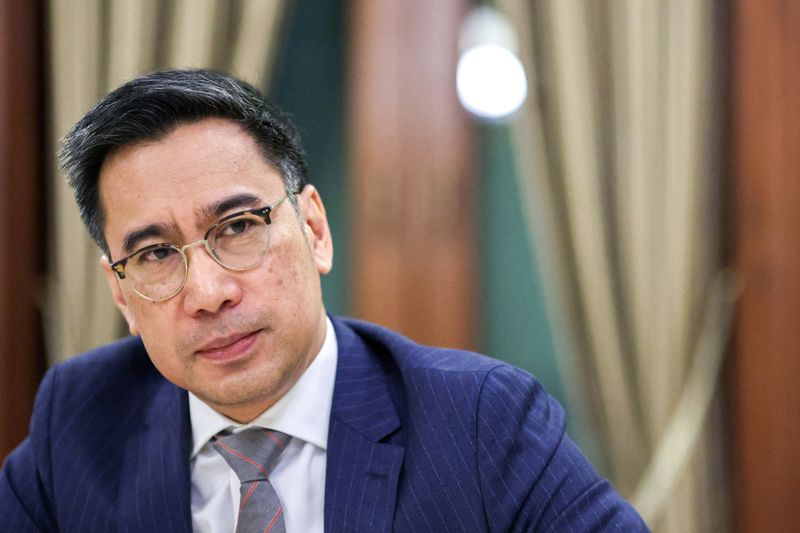By Orathai Sriring and Kitiphong Thaichareon
BANGKOK (Reuters) - Thailand need not reduce interest rates immediately after the Federal Reserve eased policy as its economic outlook remains unchanged, the chief of its central bank said on Friday, while stressing its independence amid government pressure for a cut.
Bank of Thailand (BOT) Governor Sethaput Suthiwartnarueput also said reducing borrowing costs would not help the country's debt problems, pushing back at a government that contends the current policy rate is hamstringing its efforts to revive the stuttering economy.
Thailand's key interest rate has been at 2.50% for a year, a decade-high, and the BOT has resisted calls for easing in an extended stand-off with the government as it struggles to kick-start an economy that grew just 1.9% in 2023 and is forecast to expand just 2.6% this year.
"The policy is still outlook-dependent. The current outlook is still the same as forecast. Nothing has changed," Sethaput told reporters, adding an off-cycle meeting before the next rate review on Oct. 16 was not necessary.
"If we focus too much on the latest information, there will be a lot of volatility. We don't want monetary policy expectations to exacerbate market volatility," he added.
Rate cuts, Sethaput said, would not help with Thailand's problem of household debt, where the ratio is close to 91% of gross domestic product, among the highest in Asia.
The issue should be addressed with a policy mix, including debt restructuring for vulnerable groups, Sethaput said.
SHORT-TERM BOOST, LONG-TERM PROBLEM
In remarks at a BOT symposium on Friday, Sethaput underlined the importance of central banks remaining independent.
"Central banks are designed to support the implementation of monetary policies that must give weight to long-term stability," he said.
"If central bank are not independent enough, they may lose the principle of long-term vision."
While lower interest rates could raise short-term growth, there was a trade-off with inflation and that could create vulnerabilities such as debt accumulation and speculation, he added, constraining long-term growth and risking a crisis.
The governments of Prime Minister Paetongtarn Shinawatra and predecessor Srettha Thavisin have urged a rate cut to augment their fiscal stimulus, including the imminent rollout of a flagship scheme to give 10,000 baht ($302) handouts to 45 million Thais to spur activity.
The BOT chief's remarks come just weeks after the rise to power of Paetongtarn, who earlier this year said central bank independence was an obstacle to solving economic problems.
It also comes as her ruling Pheu Thai Party nominates its loyalist Kittiratt Na Ranong, a former finance minister with a record of clashing with the central bank, to be the next BOT board chairman, as reported this week by Reuters.
The BOT board chair has no say in monetary policy, but is involved in appointments of governors and the monetary policy committee.
Sethaput also said the BOT was monitoring the baht, which has become stronger and more volatile, driven by a weaker dollar, he said, adding the baht's strength had not impacted exports much.

"We don't want the baht to be overly volatile," he added.
($1 = 33.0700 baht)